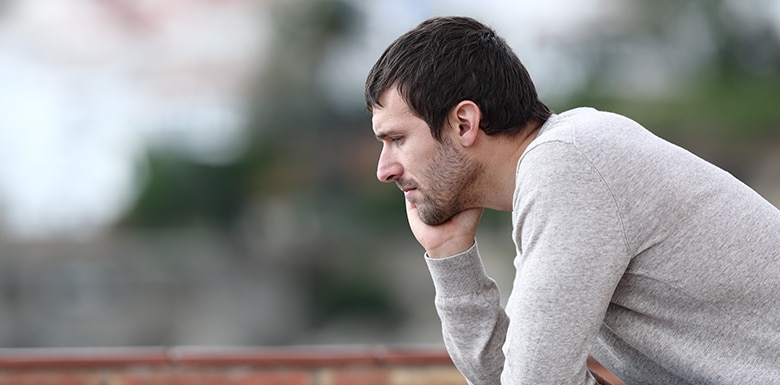
When you’re charged with a sex crime in Texas, you can bet that the police will dig into your past. They’re looking for skeletons in your closet, like past convictions or arrests. The bigger, the better. They’ll specifically look for prior sex crimes that might be related to the current case, like if you’re accused of child molestation and were previously convicted of statutory rape as a young adult.
In certain cases, prior bad acts are admissible evidence in sex crimes. But you shouldn’t let the prosecution use your criminal record against you without a fight. The fact that you had trouble in the past does not indicate that you are guilty of the current charges. That is why experienced Houston sex crimes lawyer Ned Barnett fights to limit evidence of prior bad acts against his clients.
To learn more about protecting yourself against prior convictions, call The Law Offices of Ned Barnett at (7130 222-6767 or use the online form to request a free, confidential consultation.
Evidence of Prior Bad Acts Is Not Automatically Admissible
In general, relevant evidence is admissible unless another law or rule says a certain type of evidence is inadmissible. One of those rules is Rule 404: Character Evidence; Crimes or Other Acts.
In Texas, evidence of your character is not admissible to prove that on a particular occasion, you acted in accordance with that character or trait (Rule 404(a)). Also, evidence of a crime isn’t admissible to prove your character and show that on a particular occasion, you acted in accordance with that character (Rule 404(b)).
When Evidence of Prior Bad Acts is Admissible
At first glance, Rule 404 seems helpful. But it’s important to read the rule carefully—the prosecutor will. While it says evidence of character or prior bad acts isn’t admissible to prove you acted a certain way at a specific time that doesn’t mean this kind of evidence isn’t admissible to prove other issues, like motive, intent, opportunity, plan, or absence of mistake (Rule 404(b)(2)).
If you are currently charged with sexual assault, then the prosecutor will want to include evidence about previous sexual misconduct, whether or not it resulted in a conviction. The prosecutor can’t have another alleged victim claim that you raped them to prove you raped the current alleged victim. Instead, the prosecutor might try to have one or several witnesses testify about your past conduct to prove you intended to assault someone or had a motive or plan for doing so.
Rule 404 Exceptions
Rule 404 also has explicit limitations. As a defendant, you can offer evidence of your relevant traits (Rule 404(a)(2)(A)). But if you admit this type of evidence, the prosecutor is allowed to offer evidence to rebut it. You can also offer evidence of a pertinent trait of the alleged victim (Rule 404(a)(3)(A)). But again, once you bring this type of evidence into the case, the prosecutor can rebut it.
Evidence of a Habit Is Admissible
Another factor to consider is whether the prosecution will claim evidence of prior bad acts is admissible because it demonstrates a habit. Rule 406 says evidence of a person’s habit can be admitted to prove that on a particular occasion, the person acted in accordance with that habit. The court can allow this whether or not it’s corroborated or there’s an eyewitness.
An isolated instance of misconduct is not a habit. If you have one prior sex crime conviction or one previous allegation, then it is not evidence of a habit of sexual misconduct. Rule 406 is meant for clearly habitual behavior.
Evidence of Prior Bad Acts Against Children Is Admissible
Article 38.37 of the Texas Code of Criminal Procedure specifies when evidence of past criminal offenses, known as extraneous evidence, can be used in child abuse cases. The prosecution can use evidence of your past behavior with the currently alleged child victim and past crimes or behavior with other minors. This evidence can be admitted to show your supposed character and to prove you acted in conformity with your character.
Because of this rule, if you’re charged with a child sex crime, you’re best served by working with an experienced and aggressive defense lawyer. The prosecution will seek out evidence that you had previous inappropriate contact with children.
Your Lawyer Will Object to Prior Bad Acts Evidence
Whether or not certain evidence can be admitted at trial is decided by the judge before trial. Your attorney can then argue that the evidence doesn’t fit into one of the allowances listed in the Rules of Evidence or the Code of Criminal Procedure.
An experienced attorney may argue that the probative value of the evidence is outweighed by the risk of unfair prejudice, confusion, misleading the jury, undue delay, or needlessly presenting cumulative evidence. In addition, your defense can argue that evidence of a prior arrest, conviction, or behavior will unfairly bias the jury against you.
Evidence of Prior Bad Acts Is Admissible at Sentencing
The Texas Rules of Evidence dictates what is brought up at trial, like who can testify and what they can say. The rules are meant to control what the jury hears. The Texas Code of Criminal Procedure, on. The other hand, decides what evidence is presented during sentencing.
Based on Article 37.07, Section 3, the judge can take into consideration any evidence the court thinks is relevant, including evidence of your character, past criminal convictions, past misconduct, and more.
Reach Out to a Houston Sex Crimes Attorney for Help
When you have been accused of a sex crime, take steps to protect yourself right away. Don’t agree to speak to the police or answer questions until you’ve retained an experienced lawyer in Houston. Once you have a lawyer, you can tackle the challenge of how to avoid charges or defend yourself at trial.
If you need legal counsel, reach The Law Offices of Ned Barnett at (713) 222-6767 or through our online form. We offer free initial consultations.